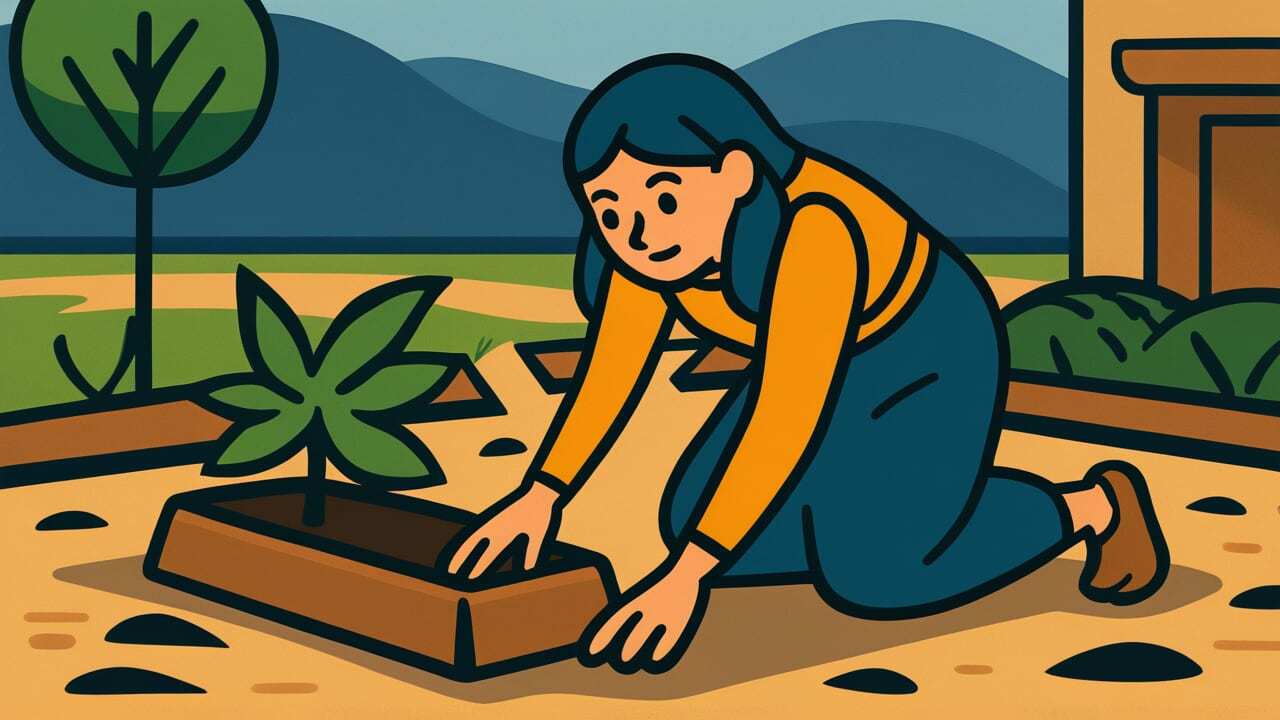How to Read “A widow’s determination”
Goke no funbari
Meaning of “A widow’s determination”
“A widow’s determination” is a proverb that describes the strong willpower of a woman who has lost her husband and faces difficulties head-on.
It refers to someone who has lost their most reliable support and is cornered both economically and emotionally, yet displays surprising strength to overcome hardships.
This proverb expresses a fundamental truth about human nature. When people are truly cornered, they can display unexpected strength.
Especially when there’s no way back and no one to rely on, people can draw out inner strength they never knew they had.
Today, this saying isn’t limited to widows. It describes human strength shown in desperate situations and the power to rise up using adversity as a springboard.
It celebrates the amazing vitality and strength of will that humans possess, which emerges precisely because of difficult circumstances.
Origin and Etymology
No clear written records of this proverb’s origin seem to exist. However, the components of the phrase reveal an interesting background.
“Goke” (widow) is a word for a woman who has lost her husband. It has been widely used since before the Edo period.
In that era’s society, women who lost their husbands typically faced extremely harsh economic and social positions. Remarriage opportunities were limited.
If they had children, they had to shoulder the responsibility of raising them alone.
“Funbari” (determination) contains the meaning of planting your feet firmly and applying force, refusing to fall easily. It embodies strong will.
When these two words combine, they express the extraordinary mental and physical strength shown by people in the most difficult situations.
In Edo period merchant culture, many examples existed of women who lost their husbands taking over businesses and protecting the family trade admirably.
People who witnessed such women were deeply impressed by their strength. This likely gave birth to this expression.
Our ancestors keenly observed the inner strength that humans display precisely because of difficult circumstances.
Usage Examples
- After losing her husband, she rebuilt the company with a widow’s determination, and now it’s an industry leader
- Her widow’s determination truly commands respect—she put all three children through college
Universal Wisdom
The proverb “A widow’s determination” offers deep insight into the remarkable adaptability and vitality that humans possess.
Why can people display unexpected power precisely in the most desperate situations?
It’s because humans have a mechanism where dormant potential awakens when we realize “there’s no way back.”
When we have someone to rely on, we hold feelings of dependence somewhere inside. However, when we lose that person and resolve to stand alone, we change.
When options disappear, hesitation vanishes instead. A clarity emerges that we can only move forward.
This proverb has been passed down through generations because it shows a truth. Human strength comes not from favorable circumstances but rather from difficult ones.
Each of us harbors power within that we haven’t noticed. It never surfaces during peaceful daily life.
But when truly cornered, when there’s something to protect, that hidden power reveals itself.
Our ancestors may have wanted to convey through this proverb that humans are fundamentally such strong beings.
When AI Hears This
The human brain reacts 2.5 times more strongly to the pain of loss than to the joy of gain.
This “loss aversion” proven by behavioral economist Kahneman can scientifically explain the phenomenon of a widow’s determination.
Right after experiencing the greatest loss—a husband—sensitivity to loss in the brain reaches its limit. A powerful defensive instinct activates: not wanting to lose anything more.
What’s interesting is how the sunk cost effect overlaps here. The home, fields, and relationships built with a husband are assets that already received enormous investment of time and effort.
Economically, past investments shouldn’t influence decision-making. But the human brain doesn’t work that way.
Rather, the psychology of “I can’t let what I’ve built up go to waste” generates persistence beyond normal expectations.
Experimental data shows that right after a loss is confirmed, people don’t become risk-averse. Instead, they become aggressive, trying to recover the loss.
The determination a widow shows isn’t passivity from grief. It’s active strategic behavior born from the dual pressure of loss aversion and investment recovery.
In other words, this proverb captures the moment when the human decision-making system becomes most sharpened.
When fear of losing and attachment to what’s been built intersect, humans are creatures who display power beyond imagination.
Lessons for Today
What this proverb teaches modern people is the importance of believing in the power sleeping within yourself.
Are you relying on someone right now? That itself isn’t bad. But if that person truly disappeared, would you be unable to do anything?
Surely that’s not the case.
Modern society emphasizes teamwork and cooperation. But it’s also important for each individual to possess independent strength.
If you depend too much on someone, you’ll lose yourself when that person leaves or when that relationship changes.
This proverb also teaches that difficult situations are chances for personal growth.
The problem you face right now might be the trigger that awakens new power sleeping within you.
When you feel there’s no escape, that’s actually the moment you meet your true strength.
When you resolve to stand alone, people can display power beyond imagination. Don’t forget that.



Comments